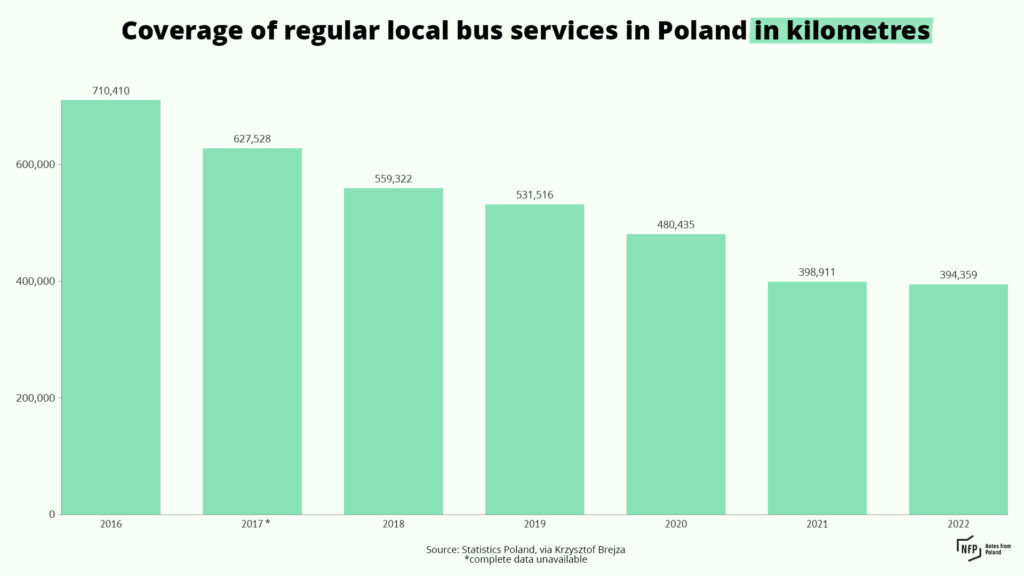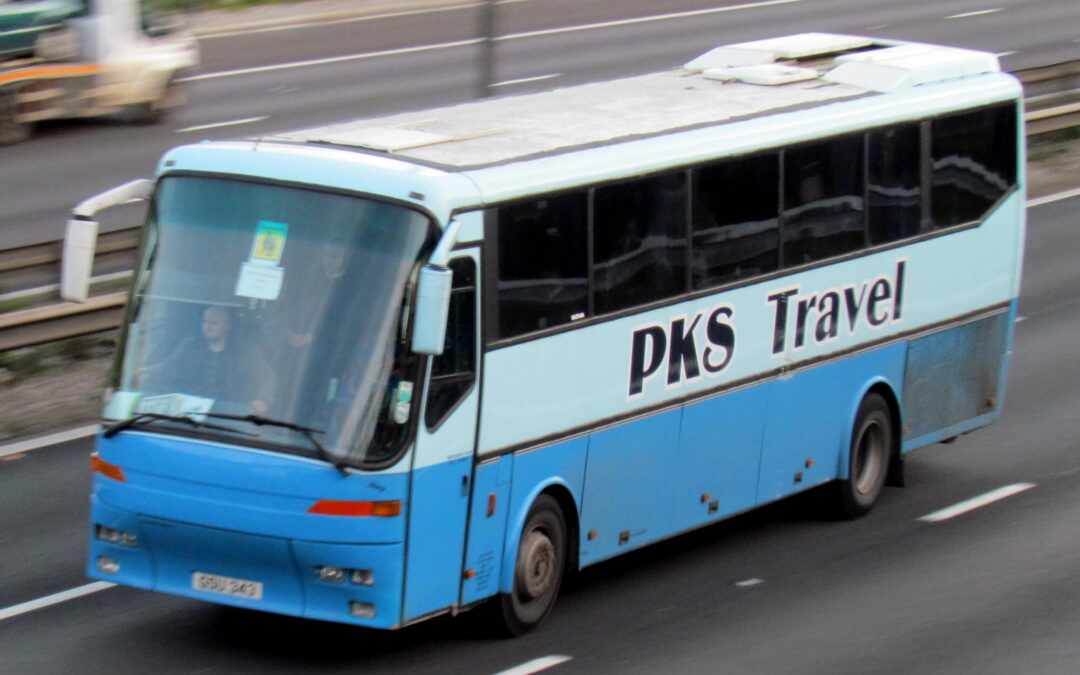The total length of local bus routes in Poland outside major cities fell by almost 45% in six years from 710,410 kilometres in 2016 to 394,359 kilometres by the end of 2022, data from the Polish statistical office Statistics Poland (GUS) show.
The decline has continued in recent years despite the government’s plans to increase the number of routes in order to combat transport exclusion.
Experts say that although the Law and Justice (PiS) government has indeed earmarked funds for the expansion of the local bus network, called PKS, some of which is at least partly state-owned, the money is being used ineffectively, placing the responsibility of organising inter-city transport on local authorities instead of organising it top-down, at the regional level.
The figures were released this week in response to a request by the opposition Civic Platform (PO) party senator, Krzysztof Brejza.
“So much for the PiS government’s ‘fight’ against mobility exclusion,” said Brejza on social media, publishing the response sent to him by GUS. “For themselves, limousines and riding in convoys using sirens – and fewer PKS connections for citizens.”
An infrastructure ministry spokesperson, Szymon Huptyś, responded to the data by saying that “today, bus services reach more than 5,000 more villages than in 2015” without, however, referring to the information about the reduction in bus network coverage in kilometres.

In 2019, ahead of the last parliamentary elections, PiS, fighting for re-election, announced plans to restore a network of local bus services, pointing to the transportation exclusion of residents of Poland’s smaller towns and cities.
Since then, with the help of a specially created Bus Service Development Fund, the infrastructure ministry has been subsidising local bus routes that applied for the program.
In 2021, the Polish state rail operator PKP also joined the fight against transport exclusion, planning to create bus connections from remote locations to boost access to train stations. Earlier this year, PKP completed the due diligence process for this project, reported news service Portal Samorządowy.
Poland’s state railway operator is planning to launch a subsidiary offering bus connections from remote locations to boost access to train stations.
The project aims to address transport exclusion, which is estimated to affect millions of Poles https://t.co/3k0KY7R22f
— Notes from Poland 🇵🇱 (@notesfrompoland) November 4, 2021
Last month, parliament amended the law on the matter, increasing funding to 1 billion zloty a year (€224.77 million), starting in 2024. The amendment will also allow regional governors to sign contracts with coach operators for up to 10 years, up from the limit of a maximum of one year.
According to the infrastructure ministry, this will ensure greater predictability and stability in the fund’s subsidies, and thus encourage public transport organisers to join the program, especially in areas where transportation accessibility is currently insufficient.
Poland's most famous bus line – the 666 to Hel, a town on the Baltic coast – has been brought to an end.
The operator has confirmed it made the decision after receiving complaints about the number, which one Christian group warned was "spreading Satanism" https://t.co/vaVtR8v9Vm
— Notes from Poland 🇵🇱 (@notesfrompoland) June 14, 2023
Aleksander Kierecki, the editor-in-chief of transportation news site TransInfo also points to the way connections are organised as a reason for the program’s ineffectiveness.
“Non-urban transportation in Poland is the responsibility of low-level local governments, i.e. municipalities and counties. In other European countries, public transport is created from the top: first the province, then the county and municipalities. In Poland, it is the other way around,” he told TVN24.
“This money is not as effective at the moment as it could be”.

Notes from Poland is run by a small editorial team and published by an independent, non-profit foundation that is funded through donations from our readers. We cannot do what we do without your support.
Main image credit: Konrad Krajewski / flickr.com (under CC BY-NC 2.0)

Alicja Ptak is deputy editor-in-chief of Notes from Poland and a multimedia journalist. She has written for Clean Energy Wire and The Times, and she hosts her own podcast, The Warsaw Wire, on Poland’s economy and energy sector. She previously worked for Reuters.



















